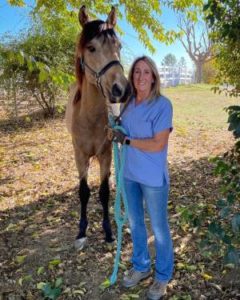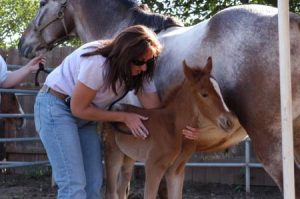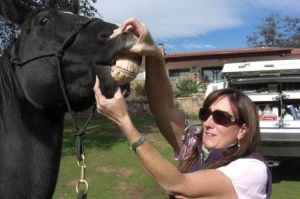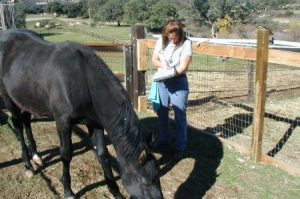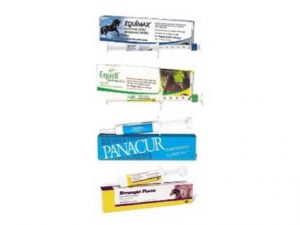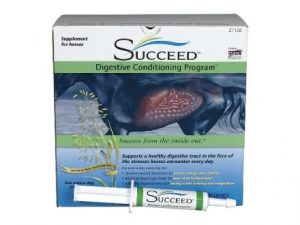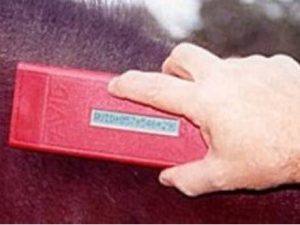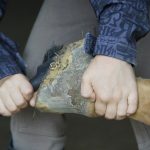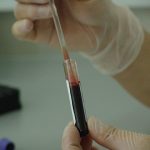In most cases, saliva continually produced in the mouth lubricates the offending obstruction, eventually allowing its passage to the stomach. Your veterinary surgeon can help speed resolution by administering a sedative or a spasmolytic (‘antispasm’) injection to help relax the oesophagus. Sometimes, this is all that is required.
In other cases the obstruction can be gently encouraged to move on down into the stomach with the help of the stomach tube. If this cannot be achieved easily, the horse is sedated and the obstruction is flushed with water and lubricant via the stomach tube, with the head positioned lower than the oesophagus. Fluid is gently pumped in via the stomach tube and allowed to run out, gradually flushing some of the obstructing material out. This can be a long process and patience is needed to avoid damaging the oesophagus. In some panic-stricken, uncooperative or solidly-obstructed cases it is necessary to anaesthetise the horse to allow flushing to be performed safely and thoroughly.
Once the choke is cleared the horse should be fed sloppy feeds or grass for several days to allow any local swelling to subside.
The most important complication is oesophageal rupture either as a direct result of the obstruction or following attempts to dislodge it.
Another possible complication is pneumonia. Occasionally, the horse may aspirate (breath in) fluid and/or food material into the trachea (windpipe) and lungs causing infection, which may be fatal.
The most important management considerations are:-
- soak dried foodstuffs thoroughly to allow them to swell before they are eaten and swallowed
- ask Dr. Garfinkel to provide regular routine dental care to allow the horse to chew food thoroughly and effectively before it is swallowed. Injuries to the insides of the cheeks, caused by sharp teeth, will cause discomfort and may discourage a horse from chewing food properly.
- provide permanent access to clean water to encourage the horse to drink normally.
Some horses choke on a particular feed and once this is recognized, access should obviously be avoided.
If you have any questions or concerns on Choke contact us at 619-659-1180.

